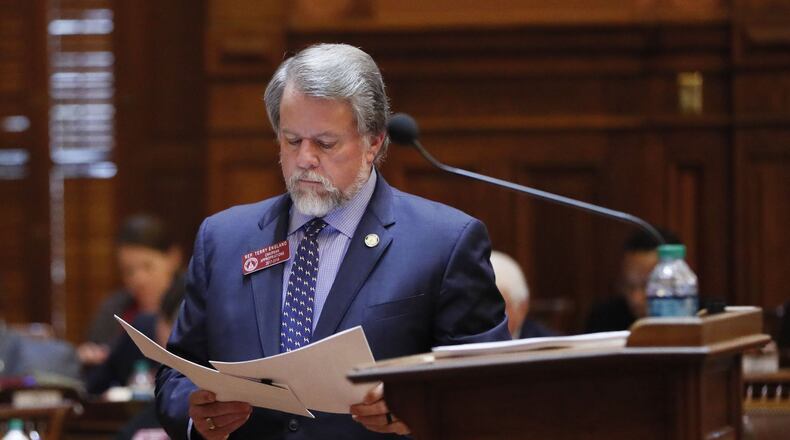Rising state tax collections have given Georgia lawmakers an extra $109 million to spend in the midyear budget.
The extra money became available when Gov. Nathan Deal increased his revenue estimate for fiscal 2018, which ends June 30.
The state House voted 155-8 Thursday for a new midyear spending plan that adds almost $30 million in grants to local governments to replace funding they now receive from sales taxes on jet fuel, $4.5 million for economic development grants, and $1.2 million to pay for an increase in flu cases at Georgia hospitals.
An additional $150,000 would go toward new arts grants, $1.6 million for beach improvements on Jekyll Island, $12.3 million for marketing and equipment at technical colleges, and $43 million more for land conservation grants.
The plan also puts $8.6 million of the windfall toward equipping and furnishing the state’s new $100 million courthouse, which is under construction down the street from the Capitol.
The Senate is expected to approve the measure Monday.
House Appropriation Chairman Terry England, R-Auburn, said the money for jet fuel grants was included because the federal government is demanding that local governments spend the tax money at airports. The issue is being fought in court and could have a major impact on Clayton County, which gets big money from the jet fuel tax through Hartsfield-Jackson International Airport.
The extra money was available because tax collections have far outpaced what’s needed to fund the state’s $25.4 billion budget this year.
The state’s tax collections slowed midway through 2017, but they picked up dramatically in the past few months. Collections were up 10 percent in December and 16.7 percent in January, in part because many Georgians prepaid income taxes following Congress’ passage of federal tax changes.
The January monthly report included collections from people who mailed in payments in late December.
State officials across the country saw huge increases in collections in late December as people prepaid taxes, hoping to take advantage one last time of a federal deduction on state taxes that was scaled back by changes to federal tax law enacted by Congress.
The Internal Revenue Service, however, announced in late December that those prepayments could be deducted only in limited circumstances.
About the Author
Keep Reading
The Latest
Featured



